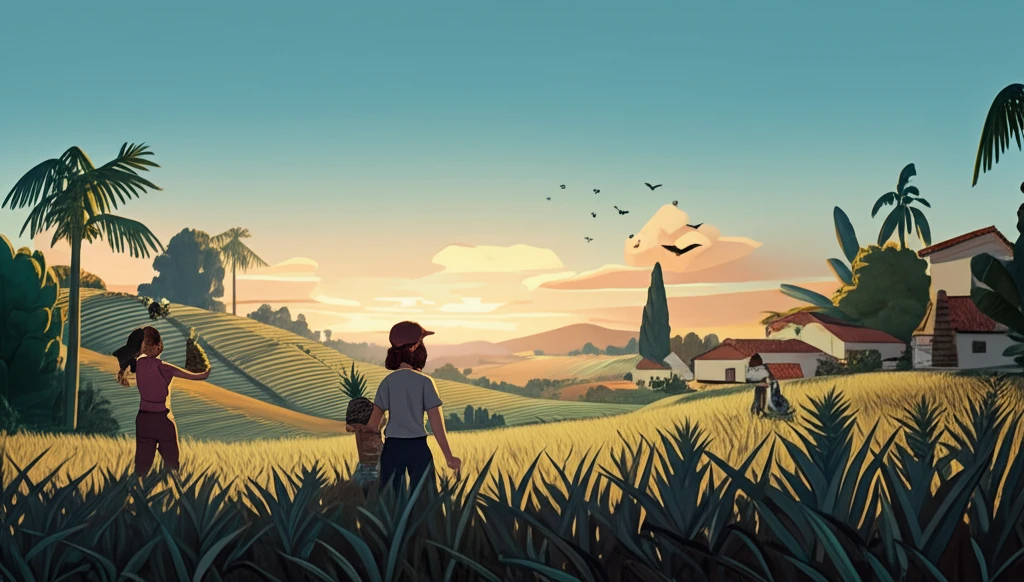
Pineapple's Comeback: How Family Farms Are Keeping the Tradition Alive
"Discover the untold story of Monte Alegre de Minas' pineapple farmers who are battling monoculture and economic shifts to preserve their heritage."
In the rolling hills of Monte Alegre de Minas, Brazil, agriculture isn't just a business—it's a deeply woven part of the local identity. For generations, family farms have been the backbone of the community, shaping its economy and culture. Among these agricultural traditions, pineapple cultivation holds a special place, marking the region as a significant producer in Brazil.
The story of pineapple farming in Monte Alegre de Minas began in the 1940s and by the 1980s, the region was celebrated as the “National Capital of Pineapple,” producing an impressive 149 million fruits annually. But as the global agricultural landscape evolved, these family farms faced new challenges. From rising production costs and lack of government incentives to the expansion of sugarcane, soybean, and corn cultivation, many farmers found themselves at a crossroads.
Despite these pressures, many family farmers in Monte Alegre de Minas have refused to let the tradition fade. These farmers are more than just producers, they are custodians of a legacy. Through innovative strategies and unwavering determination, they continue to grow pineapples, balancing economic realities with cultural preservation. This article explores their inspiring journey, highlighting the challenges they face and the strategies they employ to keep their farms—and their heritage—alive.
The Heart of the Matter: Family Farms and Pineapple Production

Family farms play a crucial role in Brazil’s agricultural sector, producing a significant portion of the food consumed in urban areas while providing employment and income in rural communities. These farms are characterized by a close connection between family labor and land, fostering a sense of stewardship and tradition. However, they often face systemic challenges such as limited access to agricultural policies, low market prices, and difficulties in commercializing their products.
- Rising Production Costs
- Lack of Incentives
- Competition from Monoculture Crops
Sustaining the Legacy
The story of pineapple farmers in Monte Alegre de Minas is a testament to the resilience and resourcefulness of family farms in the face of adversity. By embracing diversification, leveraging government programs, and maintaining a strong connection to their cultural roots, these farmers are not only surviving but also thriving. Their efforts ensure that pineapple production continues to be a vital part of the region’s economy, identity, and cultural heritage for generations to come. Supporting these farmers means investing in a sustainable future that honors both tradition and progress.
